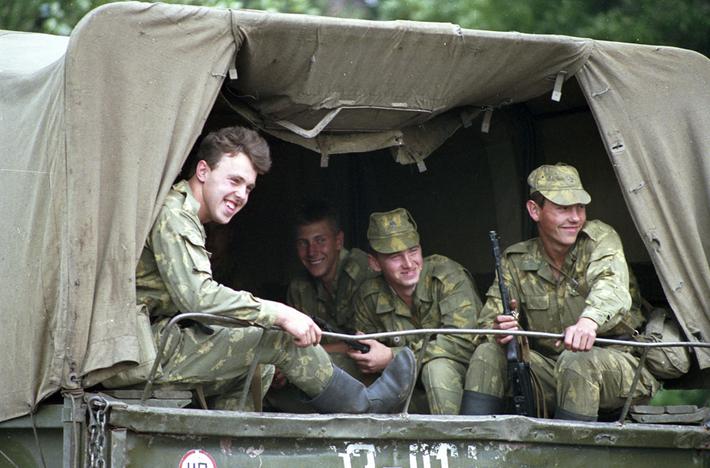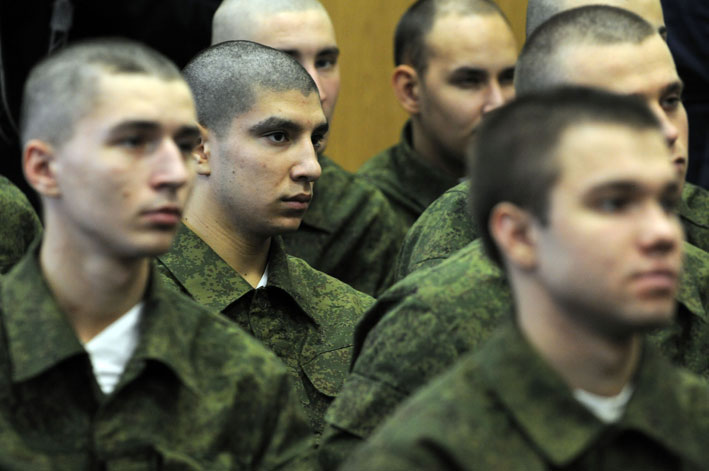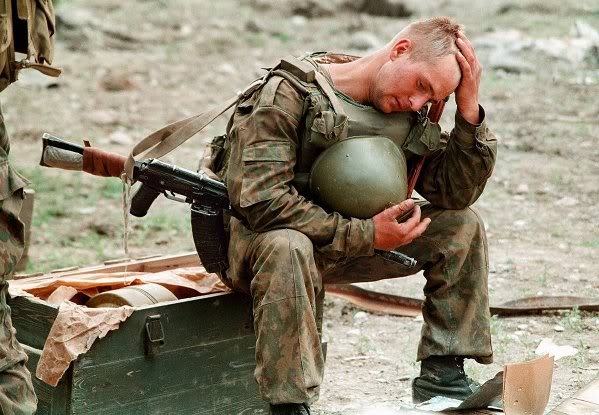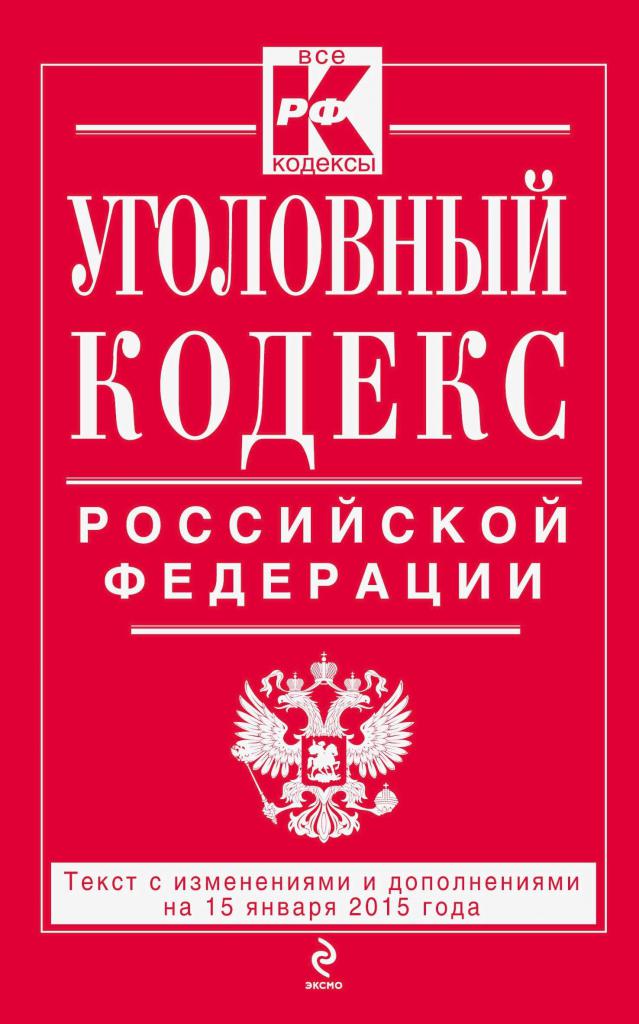The Constitution is the legal basis for introducing into the law the concept and types of crimes against military service. According to the provisions of Article 59, the defense of the Fatherland is the duty of a citizen of the Russian Federation. Accordingly, evasion of its execution and violation of the established procedure for being in the ranks of the armed forces are not allowed.

Responsibility for the military comes on a common basis. In this case, the title and position held do not matter. However, taking into account the specifics of the legal status of these individuals, not only general criminal norms can be applied to them, but also special provisions criminalizing crimes against military service. Let's consider it in more detail.
General information
The concept of crimes against military service is disclosed in article 331 of the Criminal Code. According to the norm, they are considered encroachments of employees on the procedure for performing service in the RF Armed Forces, established by law and other normative acts, in other military formations, troops on a contract or draft basis, as well as entities in reserve during military training.
Criminal liability for crimes against military service that are committed in a combat situation is established in accordance with the legislation of the Russian Federation provided for wartime.
According to special rules of the Criminal Code, the punishment is imposed on military builders of units (detachments) of the Ministry of Defense, other departments and ministries of Russia.
Classification
The establishment of responsibility for a crime against military service in the special norms of the Criminal Code is determined by the need to distinguish these acts from other attacks. According to the severity of a specific nature, they can be divided into 2 main groups:
- Special military. This type of crime against military service includes acts that have no analogues among other assaults. An example is desertion, the punishment for which is established by article 338 of the Criminal Code.
- Relatively military. These crimes against military service have some features similar to those of other assaults. For example, we are talking about the use of violence against a military commander.
In practice, difficulties often arise in qualifying acts relating to the second form.
Characterization of crimes against military service
The encroachments under consideration possess all the signs of common criminal acts. Accordingly, when characterizing crimes against military service, they say:
- Public danger.
- Criminal wrongfulness.
- Guilty.
- Punishability.
Danger to society
In the general characteristic of crimes against military service, this feature takes first place.
The social danger of any act is expressed in the fact that the actions of individuals harm the interests of citizens and the state or create a threat of causing such damage. Crimes against military service enshrined in the Criminal Code of the Russian Federation carry a particularly high risk.

So, the use of violence against the chief of the military unit, violation of the rules of relations between employees in the absence of subordination, damage the health of the victims in such legal relations. Failure to comply with the procedure for using weapons, items that pose a danger to others, failure to comply with the instructions when flying or during preparation for them, and other illegal actions jeopardize public safety.
The indicated interests of the state, society, and the individual may be protected in other cases through the application of general criminal articles of the Criminal Code. Crimes against military service threaten higher interests. They encroach on national security. By it is understood the state of complete protection of the state from armed aggression. The security functions are precisely performed by the armed forces and other special units.
Any crime against military service, regardless of what it is specifically expressed in, undermines the combat readiness of the unit. Consequently, an infringement in any case damages the security of the state.
Criminal wrongfulness
This sign indicates that any crime is an act for which a punishment has been established in the Criminal Code. Criminal liability cannot occur for actions / inaction not specified in the Code.
Of no small importance is the place that a particular norm, providing for liability, takes. The fact is that one act may be present as part of the signs of various crimes. For example, if a policeman beats a citizen, this act can be qualified as an attack on human health or as abuse of authority.
Varieties of wrongfulness
Species are established depending on the status of the guilty subject. Crimes against military service are especially wrongful. Such acts can be considered only those acts that are enshrined in chapter 33 of the Criminal Code. Other crimes committed by military personnel and causing damage to official interests are not included in this category. Accordingly, they are distinguished by general wrongfulness. Such acts include, for example, disclosure of state secrets of a military nature, theft of military property, etc.
At the same time, all acts that have signs of compositions enshrined in the Criminal Code in Chapter 33 and general criminal norms must be qualified under the special articles of Ch. 33, not the general provisions of the Code.
Features of punishment
Usually the responsibility for crimes against military service is somewhat stricter (or, in any case, should be such) than the punishment for acts that coincide on objective grounds, but provided for in general criminal norms. In the current Criminal Code, this principle is not respected.

In particular, for the use of violent acts against the commander of a military unit that entailed damage, including grievous ones, they are punished with 3-8 years in prison (Article 334, part 2). In fact, the law established a punishment for a crime against military service, similar to that for intentional grievous bodily harm, as enshrined in a general criminal article (Art. 111, para. 1). With this “equality” of sanctions, the fact that the encroachment provided for in article 334 does not only damage a private person, but also the security of the state, is not taken into account. Consequently, liability for crimes against military service should be stricter.
In some cases, the acts in question are committed under conditions, the presence of which, according to general criminal standards, entails more severe sanctions. For example, the same article 111 separately speaks of the infliction of grave damage to health under aggravating circumstances. A sanction is provided for this, the severity of which is significantly higher than that of the punishment established for the use of violent acts against the head of the military unit. In such cases, as a rule, the rules of competition of the rules do not apply: the liability of military personnel for crimes against military service is determined by general criminal standards.
Meanwhile, the use of only a general article of the Criminal Code may lead to ignoring the danger of the war crime itself. Therefore, it is necessary to apply qualifications for a combination of acts.In other words, a criminal offense against military service and a more serious assault is punished.
Qualification rule
Given the above, the following principle can be formulated. An act constituting a crime against military service is always qualified under special article 33 of the chapter. If circumstances beyond the scope of the composition, which do not cover the act and relate to a more dangerous unlawful action, are identified, the general criminal rule is additionally applied.
For example, if an employee, while resisting the boss, commits his murder, the crime of causing death is qualified under paragraph "b" of part 2 of article 105, resistance - under paragraph "c" of paragraph 2 333 of the norm.
If a circumstance that goes beyond the scope of a military crime covers it, but at the same time has signs of a more dangerous act, the behavior of the subject is qualified exclusively under the general criminal article establishing the appropriate punishment. For example, the murder by employees of their boss by all indications falls under paragraph "b" of part 2 of article 105 of the Criminal Code. Accordingly, additional qualification under the 334 norm is not carried out.
If the murder did not occur in connection with the performance of duties in the service, but during their performance, the deed will be qualified according to the totality of the articles (clause "in" part 2,334 of the norm and the corresponding part of Article 105).

Guilt
She is considered one of the key signs of crimes against military service. In the Russian Federation, the establishment of guilt is a prerequisite for holding entities liable for committed socially dangerous acts and consequences that have arisen as a result of this.
Guilt is manifested in intent and negligence. The law also provides for signs of innocent damage. All these elements apply to the crimes in question without exemptions.
Specificity is only the content of guilt. It reflects the military nature of the crime. In one way or another, the subject expresses his attitude not only to socially dangerous actions and the consequences that they entailed, but to an act encroaching on the order of service and causing damage to the unit’s fighting efficiency, state security in general. The guilty person is aware of the circumstances in the intent, both direct and indirect, or does not realize, provided that he had the opportunity and was obliged to assume them (with carelessness).
Difficulty in practice
Problems in establishing guilt in the framework of specific crimes are caused by the design features of a number of compositions, the duty of the authorized bodies conducting the investigation to comply with the requirements of part 2 of article 24 of the Criminal Code, according to which liability for reckless crimes is limited to cases directly specified in the relevant norms of the Special Part.
As a key indicator of the form of guilt acts the mental attitude of the citizen to the deed. According to Part 1 of Article 24 of the Criminal Code, the guilty person is a person who committed a crime intentionally or through negligence. In turn, the attitude towards the consequences can be either careless, intentional, or just careless.
For example, in part 1 of article 332, a penalty is established for failure to comply with a subordinate’s order of the boss if this has caused substantial damage to official interests. Part 3 of the same norm establishes a sanction for non-execution of an order in connection with a careless or dishonest attitude to one's duties, which has caused serious consequences. It follows from this that in part 1 the attitude of the person to the deed implies intent. In turn, guilt regarding the harm inflicted implies intent and negligence.
If the norm does not contain any reservations, then it is considered that the subject acted intentionally.
Punishability
In the current Criminal Code there are no rules providing for certain crimes to apply the provisions of the Disciplinary Charter and, accordingly, transfer the act to the category of misconduct. The list of types of sanctions is quite narrow. Among the general punishments, imprisonment, fines, restrictions on service, placement in a disciplinary unit are established.
Some articles provide for arrest. However, today it is not applied, since there are no adequate conditions for its implementation.

Additional sanctions include a ban on carrying out activities or filling positions established by a court, as well as termination of rank.
The specifics of military relations
Fulfillment of duties is carried out in accordance with certain requirements enshrined in the charters and other regulatory acts, orders, orders. Failure to comply with the rules of service entails its disorganization, disruption of tasks, the implementation of which is assigned to the Armed Forces, causes material, physical and other damage. Acts that do not violate established rules relate to crimes of other categories.
Service in the Armed Forces of the Russian Federation is a complex of general and special legal relations. The first include those whose participants are all military personnel. The second category of relations is established in specific areas of performance. They are associated with the solution of individual highly specialized tasks. Accordingly, their participants are far from all, but only some categories of employees.
This classification is taken into account when forming a system of compositions of attacks on the order of service: some violate general legal relations, while others violate special ones. Among the first are crimes against the rules:
- subordination and statutory relations (332-336 articles);
- stay in the armed forces (Articles 337-339);
- savings of property of military units and divisions (Articles 345-348).
At the heart of all these acts is a violation of the requirements binding on all military personnel.
The second group of attacks includes crimes against the rules:
- carrying out certain types of service (340-344 articles);
- safe operation of military-technical devices and means of certain types (Articles 349-352).
Direction of the offense
It can be defined in various ways. The main indicator is the nature of the crime. In the investigation, however, all objective circumstances of the commission of the act are taken into account. For example, resistance, disobedience to the superior, desertion, other actions are recognized as military offenses and other crimes cannot be.

In other compositions, the object is determined by indicating its special features. For example, the use of violent acts against the head will constitute a crime against the service if it occurred in connection with the fulfillment by the leader of his duties or at the time when the victim was in execution.
Damage / destruction of property, violation of the safe use of military equipment will be considered war crimes if the guilty person acts on those items that are indicated in the relevant articles of chapter 33. If an act lacks special features, it cannot be regarded as an infringement on official interests. If there are grounds, liability for it can only come within the framework of general criminal norms.
Question about the consequences
Linking crimes with specific rules is important not only for proper qualifications, but also for determining the nature of the consequences.
The order of service is established for the implementation of the tasks assigned to the aircraft. They are to ensure the country's defense. According to the Federal Law "On Defense", an army is created to protect the state using weapons.Domestic, border and other troops are involved in ensuring the country's defense.
Accordingly, non-compliance with the order of service always entails a weakening of defense capability and combat readiness. This harm is associated with failure to fulfill the tasks assigned to the unit, creating a threat to the objects whose protection is entrusted to the formation.
Nature of the damage
Harm can occur in various forms. He might be:
- material;
- physical;
- state political;
- moral and psychological;
- moral.
Material damage is associated with the alienation, destruction of property, its damage, theft of valuables put under protection.

Physical harm manifests itself in the application of violence to an employee. This damage is a direct indicator of the defense capability of a military unit. The fact is that with direct physical impact and the use of threats, the victim may change his attitude to the service, decrease his exactingness for his subordinates (in the case of damage to the health of the unit head).
Organizational harm involves the disruption of military-oriented measures, the loss of military command, and evasion of the implementation of tasks. It can be a direct result of a failure to fulfill an order or have an indirect character and manifest through material or physical damage. For example, if the head of the unit is beaten, he will not be able to carry out a combat or other mission. This consequence is considered grave, and responsibility for the corresponding act occurs under paragraph "2" of part 334 of the Criminal Code.
